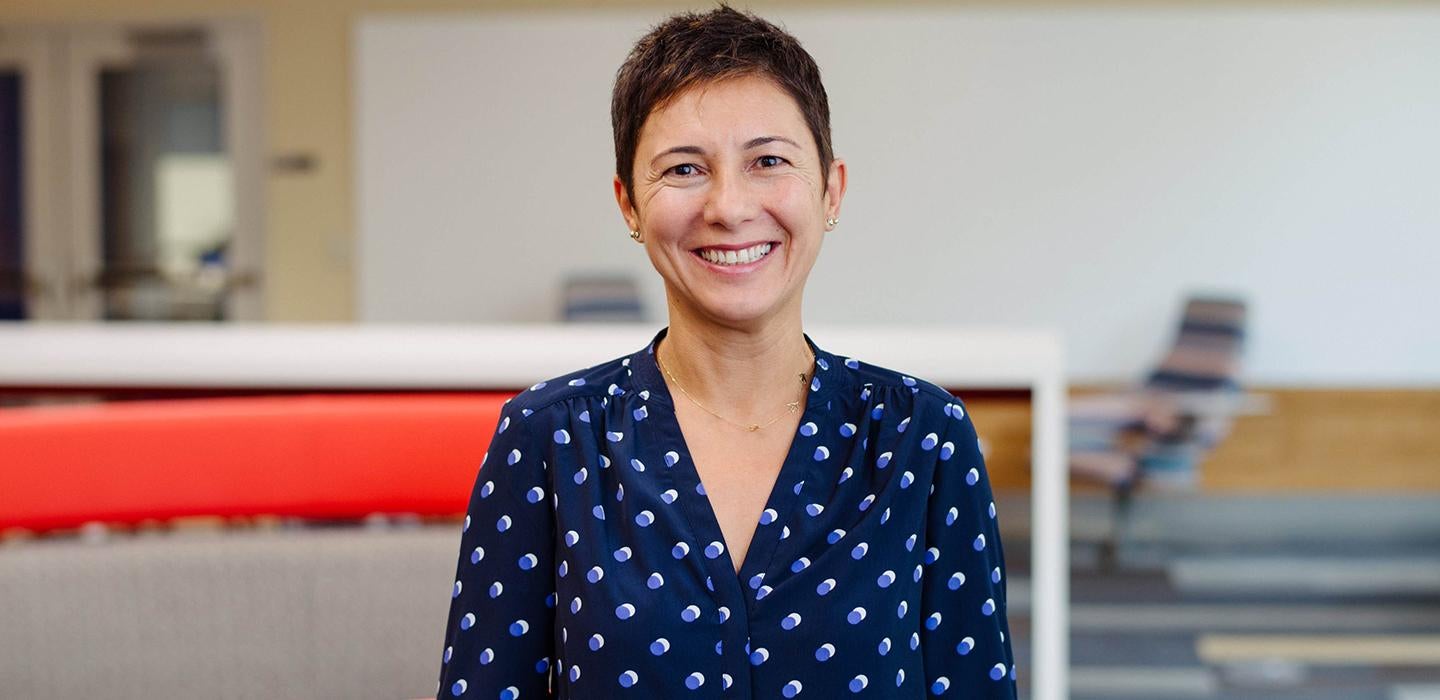
Subscribe to Pittwire Today
Get the most interesting and important stories from the University of Pittsburgh.A new global report from the United Nations Development Programme (UNDP) and researchers from the Gender Inequality Research Lab (GIRL) at the University of Pittsburgh found that women in public administration are hitting a glass ceiling, stopping their advancement to the highest levels of leadership. These imbalances could imperil recovery from the COVID-19, socioeconomic and climate crises.
The latest Gender Equality in Public Administration (GEPA) report is coauthored by GIRL Directors Müge Finkel, assistant professor in the Graduate School of Public and International Affairs (GSPIA), and Melanie Hughes, professor of sociology in the Kenneth P. Dietrich School of Arts and Sciences. It is the most expansive study of its kind, incorporating data and statistics from 170 countries.
“Women have a right to be included in decision-making positions at all levels and in all sectors of government. The research we have done here at Pitt allows us to show for the first time on a broad scale where women are being included and where men continue to dominate,” said Finkel (pictured above).
GIRL was born from the GEPA initiative, which is supported by leadership, staff and student working groups from the Ford Institute for Human Security in GSPIA; Pitt’s Departments of Sociology and Political Science; and its schools of social work, public health and education.
According to the report, women make up less than one in three top leadership positions globally, and women are missing at the table across three critical areas of action: the COVID-19 health crisis, socioeconomic recovery and addressing climate change. Public administration, defined as the implementation of government policy, is the primary way that national policies and programs address such crises. Additionally, in many countries, public administration is the single largest employer.
“Gender equality and diversity are keys to improving government function and the quality of life for us all. Accomplishing that means that we need more and better data, and collaborations such as this one between the University of Pittsburgh and the United Nations can help us achieve that goal,” said Pitt Provost and Senior Vice Chancellor Ann E. Cudd. “This research partnership has generated important new information that not only highlights the problem but also provides the evidence needed to tackle these disparities.”
“Because public administration is often the largest employer in a country, advancing gender equality in these institutions has the potential to improve the lives of millions of people,” said Finkel.
Said Hughes, “We are proud of the work we have done here at the University of Pittsburgh. It has taken us six years of intensive research, including support from over 100 graduate students, to get to where we are today. All of our work has led up to this report.”
By collecting and analyzing data from 170 countries, the report aims to improve the quality and accessibility of data on gender equality in public administration worldwide to enable evidenced-based policy change.
"This extraordinary partnership with UNDP has not only produced crucial data for understanding women's participation and leadership in public administration but has also offered exceptional engagement opportunities with global experts and learning opportunities for our GSPIA students,” said GSPIA Dean Carissa Schively Slotterback.
Other key report findings are that women are being siloed into certain areas of policy work and that there is substantial variation in women’s participation across regions and countries.
“Women must have a seat at the decision-making table. The COVID-19 crisis provides an opportunity to reset power imbalances and institutions to deliver on the 2030 Agenda for Sustainable Development. The GEPA report offers a road map to help getting there. Above all, gender equality must become part of the DNA of all institutions,” said António Guterres, the United Nations Secretary-General.
More takeaways: Glass ceilings and walls, plus progress
Women around the world continue to be underrepresented in decision-making levels, constituting just 38% of managers and 31% of top leaders. “Overall, these averages reveal a familiar pattern: As the level of decision-making power and influence increases, women’s numbers decline. Unless addressed directly, ‘glass ceilings’ will continue to prevent women from advancing to the highest levels of leadership,” the report states. Other findings include the following:
- “Women remain concentrated in some policy areas and starkly underrepresented in others. While women’s numbers are highest in ministries focused on women’s issues, health and education, they are underrepresented in 15 of the 20 policy areas, with public works and transportation reporting the lowest share of women. These ‘glass walls’ are likely limiting women’s influence on policymaking and their ability to effect change overall.
- “Progress towards gender parity is evident in three high-profile policy areas traditionally considered the domain of men: ministries of defense, foreign affairs and finance. Globally, women average 41 percent of finance ministries, 40 percent of foreign affairs ministries and 36 percent of defense ministries. Between 2010 and 2020, women’s average share of positions increased by 11 percentage points in ministries of defense, 6 in foreign affairs and 10 in finance.
- “In most parts of the world, women’s participation in environmental protection ministries remains low. Women’s participation in ministries of environmental protection averages 33 percent globally—among the four lowest of the 20 policy areas included in this report. Parity in decision-making in environmental protection is exceptionally rare. Over time, there is little evidence that countries are making substantial progress towards gender parity in environmental protection ministries.”
— Katie Weidenboerner


